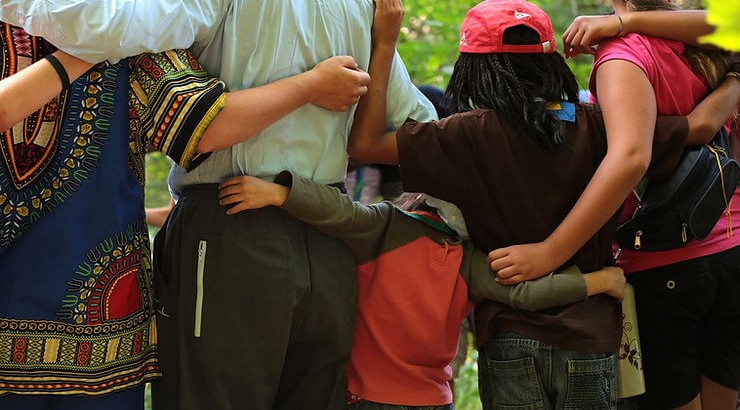Extended Family and Divorce

One of the most painful aspects of separation, after a marriage of any length, but particularly after one that’s lasted years, is the effect it has on the extended family. Through the course of a marriage, all manner of holidays and celebrations are observed with the various aunts, uncles, nieces, nephews, and grandparents that comprise the expanding branches of the family tree. This includes milestones like births, weddings, graduations, and funerals. If you have children with your ex, many of these people have provided a trustworthy source of babysitting. When a couple says I do, they are agreeing to accept each other’s relatives as their own, so when a couple says, “I don’t”, what happens to those ties?
This can be a complicated situation for all. If the divorce is a bitter one, it can almost seem more cut and dried…if more painful. Most families tend to fall in line behind their blood relatives, particularly if that person is “in the right” or is the wronged party. People generally have ideas about what is considered appropriate behavior and circling the wagons around a wounded loved one is a natural inclination.
More difficult to navigate are the waters of mutual, cordial divorce. The parties may not hold any ill will towards each other, but naturally desire to keep their families to themselves. This can be hard on the in-laws, who hopefully have accepted their kin’s spouse as a member of the family and developed the emotional ties that come with that. After all, wedded couples spend years advocating for that very acceptance of their spouse into the fold. For a family to be expected to cut off all contact with the ex is made even more difficult because they had nothing to do with that decision! While you and your ex may have had months or even years to adjust to the idea that the marriage simply isn’t working, your families are still seeing them at barbecues and special family events, including them in on those long established inside jokes and accepting gifts and casseroles during times of trouble.
Adding children to the equation can make this already complicated situation into a heart-breaker because an extended family can be the most comforting aspect of their stable existence. Going to Grandma’s house at Christmas or Thanksgiving, having their Aunt watch them after school… are important aspects of a kid’s life if they have come to expect them. However, the existence of children can put all future arrangements after divorce into crystal clear perspective. By removing the emotional reaction either ex-spouse may feel about themselves from consideration, the needs of the children become a priority.
More precisely, if you consider what is the best thing for the kids, OF COURSE having a relationship with a group of people bonded by blood, love, and history is a good idea. Putting aside any of your own misery or pain associated with divorce, consider that the more people who love and protect your kid, the better. If the former in-laws bear you no ill will, even better. Maybe you can keep the weekly coffee appointment with your former sister-in-law to “discuss your kids” or choose to attend the graduation of a former nephew-by-marriage so that the cousins can be a part of the celebration!
As usual, the key to getting through this will be communication. The extended family will and should take their cues from you. So first, as with a custody agreement between you and your soon-to-be-ex, sit down and talk about what is and is not acceptable…can the kids spend one holiday with your parents and the next with hers? Will your ex be dropping off the kids or staying with them? What happens if either of you has a new love interest? You need to be aware that how you all choose to go forward will give a clear message to your offspring as to how families operate. The message being that families will change their structure during divorce but will remain family regardless.
If there are no kids, and your divorce was contentious it might seem more respectful to you if your family cuts all ties with your former spouse. Again, keep in mind that they had NOTHING to do with your decision to separate, and they may have strong feelings for their former son or daughter-in-law. The end of that relationship will require a period of mourning. However, unless you have never gotten along with your family, it would not be appropriate for them to continue regular association with your ex without your permission. You are perfectly within your rights to ask blood relatives to cease communications, particularly if you have been cheated on or the victim of abuse of any kind. If your extended family chooses your former partner despite your feelings being known, the problem then goes beyond the usual aftermath of divorce towards something wrong with that entire family unit-whether it is mere insensitivity to outright rejection of your place and importance within it. At that point, you may want to reconsider whether or not YOU want to associate with THEM.
Address
1530 The Alameda, Suite 108
San Jose, CA 95126
Contact Us Today
TDC Family Law serves the entire state of California for Family Law Contempt of Court & Private Settlement Judge, Parent Coordinator & Mediation


